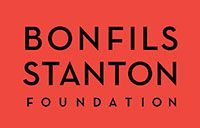Two pieces have been added to the “Short Stories in Song” concert that will conclude St. Martin’s Chamber Choir’s 22nd Season, and one of them (at least) will please a great many of you – the Robert Pearsall “Lay A Garland.” The other one is a tongue-in-cheek comical work called “The Goslings” by J. Frederick Bridge.
Again, each piece in this concert tells a brief story of its own. I haven’t yet determined a specific order, and am still considering this (i.e. should I group similar stories together, or alternate between sad and happy? Or should I consider tempi, so we don’t get too many slow ones or fast ones in a row, in order to insure variety? There are a handful of folk-song arrangements – should these be lumped together for comparison, or sprinkled out to leaven the whole? etc., etc.). But here’s the list once more, with the two new additions, followed by a few more notes:
· Morris, R. O. Blow away the morning dew
· Vaughan Williams, R. The Unquiet Grave (SSA)
· Vaughan Williams, R. Valiant for Truth
· Holst, G. I love my love
· Krueger, T. Nelson’s Death and Victory
· Krueger, MB My Grandfather’s clock (TTBB)
· Kodaly, Z. Jesus and the Money-Changers
· Jannson, M. The Choirmaster’s Burial
· Bantock, G. The Leprehaun
· Effinger, C. No Mark
· Bombardier, B. Shiloh
· Bridge, J. F. The Goslings
· Pearsall, R. Lay a Garland
The Morris arrangement of the folksong “Blow away the morning dew” is absolutely charming. Included by RVW in one of his Folk Song Suites for orchestra, it is one of my favorites; and Morris’ arrangement is fantastic. I love it especially because of the skillful way he disguises the melody in a variety of parts, truncates refrains, elides verses in the most clever ways, and (not least) his wink-of-the-eye to what appears to be love-making between the two characters in a hayfield by having the choir suddenly, mid-sentence, go to “Ah” on playful but quiet chords that move gently into the next verse…
RVW’s “Unquiet grave” tells the unhappy story of a woman who has lost her love, and pines for just a kiss from his white lips, though he is already buried. This lost-love theme is so prevalent in British folk songs that I could make an entire concert out of them, so I had to limit myself to just a couple. The Holst is a variation (though of the happy-ending variety) – a lover who so pines for her distant love that she is committed to a mad-house (Bedlam), but is happily reunited with him when he returns and rescues her from her incarceration.
The Kodaly tells the story of Jesus’ overturning of the tables of money-changers and dove-sellers in the temple. Chiefly of interest to me is the fugal treatment (in a very modern way, tonally) of two bits of text (“and making a lash from cords…” and “all the money-changers’ gold coins did he scatter”), each of which has its own subject; and then, after the fugues are worked out separately, the two subjects are then combined towards the end for a brief double fugue. Quite a feat, that Kodaly does quite successfully. For me, it’s a wonderful depiction of the frenetic activity that one pictures an angry Christ engaged in.
Concerts are as follows:
· Fri., June 3, 7:30pm, Montview Blvd. Presbyterian Church
· Sun., June 5, 3:00pm, St. Gabriel’s Episcopal Church
Tickets: (303) 298-1970; www.stmartinschamberchoir.org/concerts.















